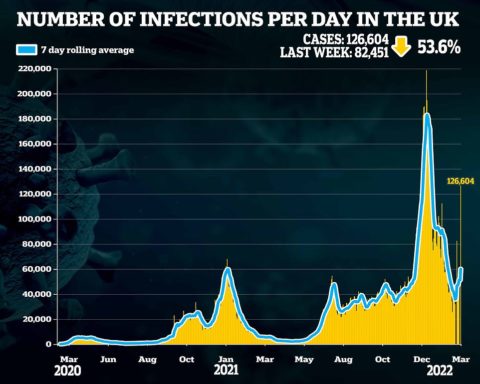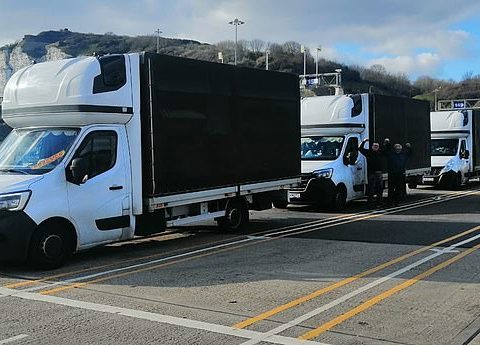The Advanced Research and Invention Agency (ARIA) was championed by Dominic Cummings while he was in Government, and is tipped to be a key initiative for the future of the UK economy. The new policy, which has seen an £800million investment from the Government, promises a new way to tackle global issues such as the energy crisis and improving cities and transport.
The Department for Business, Energy and Industrial Strategy added last February that ARIA would have “a much higher tolerance for failure than is normal, recognising that in research the freedom to fail is often also the freedom to succeed”.
The new research funding agency was first mentioned during the Queen’s speech in December 2019, as a plan to fund “high-risk, high-payoff research in emerging fields of research and technology”.
This was followed by the first investment announcement for the “blue skies” agency in the March 2020 Budget. A year later, on February 19, 2021, the Government announced its intention to table primary legislation to establish the new agency.
It was formed earlier this year with the appointment of CEO Peter Highnam – formerly an executive at DARPA, America’s equivalent of the research agency which is part of its inspiration.
According to the Government, ARIA will bring together specialists and experts from a variety of backgrounds into a team to develop new ways to deal with crises, which can both help the UK and be traded on a global market.
Julian David, CEO of trade association TechUK, summed up the policy by saying: “It’s trading ideas, rather than trading goods.”
He said efforts to provide the successful vaccine rollout were exactly the kind of focused research projects that ARIA could take on in the future.
He added that, rather than existing Government departments which manage broad parts of the country, ARIA is flexible in its application, and is able to focus its efforts entirely on developing new solutions.
Mr David told Express.co.uk that ARIA could bring benefits to all areas of the UK economy.
He said: “You name it, you can aim ARIA at it. How do you improve cities?
How do you improve transport? How do you solve the energy crisis?
“There’s many challenges that you could come up with and say, right, let’s treat that as a special project. It will actually take the things that really matter to our society and our economy.”
He added that this kind of focused research can lead to a lot of “serendipitous” discoveries.
READ MORE: Brexit Live: Rejoiners meltdown over Benefits of Brexit document [INSIGHT]
For instance, he said touch screens were first invented for use in military helicopters, and reducing the size of computer chips came about as part of the US space program – both of which have now led to the existence of smartphones.
Mr David told Express.co.uk: “When you’re really focusing on tackling specific issues, there’s a lot of potential for new innovations that can be revolutionary.”
Mr David said the approaching energy crisis was the perfect example of something that ARIA would give the UK an edge in tackling – for instance, by developing innovative ways to store energy to better alleviate the damaging effects of crises like growing supply chain issues.
The new department will also, he stated, help the UK make its mark on the world stage as we emerge from Brexit.
He said: “The only way you’re going to be a hugely successful economy now is for us to be a high value, high skill and research based economy.
“That’s how we’re going to succeed. It’s trading ideas as much as trading goods. It’s an advanced weapon.”
DON’T MISS: Malians burn EU flags as nation celebrates ‘terrorist’ France exit [REVEAL]
Russian military morale in tatters as troops take to the bottle [ANALYSIS]
VdL ignored AGAIN on world stage as Macron scrambles to save face [INSIGHT]
While ARIA is not something that is only possible as a result of Brexit, Mr David added that the motivation presented by the challenges of Brexit are exactly the kind of thing to galvanise the country to take on new initiatives.
He said: “Strictly speaking, we could have done this in the European Union.
“But what you see now is a recognition that the UK needs to excel now on a global level.
“Brexit has concentrated industry thinking, and it’s concentrated university thinking – everyone’s asking, how do we become the best globally?
“It’s also a major chance to team up with American researchers and build up that trade relationship. It’ll attract more people from the US research and development community. That’s huge.”




